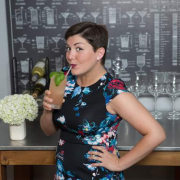Physician Job Interviewing Tips: Top 5 Don’ts
As you know, the world of medicine is a highly competitive industry. And although new physician job opportunities can seem plentiful, there are many qualified candidates lining up to interview for the best opportunities. To help you get a competitive edge and make a positive impression in that first interview, we’ve interviewed recruiting experts Tim Mulvaney and Jonathan James of UHC Solutions, a top healthcare recruiting agency that has helped thousands of physicians meet their career objectives.
Today, we’ll be sharing their Top 5 Don’ts for interviewing. Next week, we’ll follow up with their Top 5 Interviewing Dos! So without further ado, take note: here’s what not to do in your next interview.
1. Don’t Display Bad Phone Etiquette.
“Dress for success” is standard job-interviewing advice, but these days, many preliminary physician job interviews take place over the phone. If your first interview with a recruiter or hospital is going to be a phone call, you need to do everything in your power to ensure you make a good connection—literally and figuratively.
“It’s extremely important to have a good line without interruptions; a land line is preferable,” says Tim Mulvaney, founder and CEO of UHC Solutions. “You need to show that you’re a professional. We suggest to our candidates that they don’t ramble, and that they use shorter sentences for brevity, along with speaking slowing and succinctly.”
If you’re having an in-person interview, make sure your cell phone is turned to silent. Better yet, says Mulvaney, don’t bring it in.
2. Don’t Interview the Interviewer.
While you’re bound to have important questions about the physician job in question, let the recruiter, hiring authority or hospital lead the interview.
“Remember you’re the interviewee,” says Mulvaney, who, while CEO of his recruiting firm, still spends a significant amount of time interviewing physicians. “You can be intellectually curious and ask questions, but try not to break the train of the thought of the interviewer by continually interrupting or turning the tables. Otherwise, you’re going to be looked at as someone with no focus.”
Mulvaney advises physicians to stay on point, avoid tangents and allow the interviewer to dictate how deeply any given point is discussed.
“Remember to ‘check in,'” he says, “Like, ‘did I answer that completely?’ or ‘did you want me to expand upon that topic?'”
3. Don’t Be Passive.
While it’s important to let the interviewer run the interview, it’s also important not to be too passive.
“Make sure you speak up and sound confident,” says Mulvaney. “Know your CV inside and out, and be ready to verify and expand upon all the material it contains. Don’t ramble. Stay on point.”
4. Don’t Be Negative.
No matter how bad an experience you may have had in a previous working environment, it’s important not to do any bad-mouthing in your interview.
“Never say anything derogatory about past employers, residency programs or another person in your interview,” says Mulvaney. “If you do, you’re going to be looked at as a person who could be potential poison around the water cooler, which is simply the kiss of death in most of today’s collaborative work environments.”
No one wants that kind of influence in the workplace. Be diplomatic when discussing previous experiences. You can always think of something positive to say about an employment situation in the past.
5. Don’t Leave Any Question Marks.
At the end of the interview, it’s important to finish with a solid wrap-up that summarizes what you’ve learned that the interviewer wants in a candidate, how you believe you can deliver, and what the next steps are.
“Don’t send the message that you are in no hurry to make a career decision,” says Jonathan James, a top recruiter at UHC Solutions. “There needs to be some expressed urgency. It’s OK to let people know that you’re interviewing elsewhere and considering opportunities including this one. As we know in recruiting, time kills all deals. Make it very clear that you want to be part of their team. You have to go after it. You can’t just sit back on your heels and let it all come to you.”
Both Mulvaney and James say that appearance and demeanor are very important as well. And whether you’re on the phone or in person: be sure you sound, look and act like the professional you are!
Stay tuned for our follow-up post on Mulvaney and James’ Top 5 Interviewing Dos next week.
About UCH Solutions: Founded in 1998, UHC is a world-class healthcare permanent placement firm. They’ve helped hundreds of firms and thousands of candidates meet their corporate and career objectives. See UHC Solutions’ current job openings on PhysEmp.com










